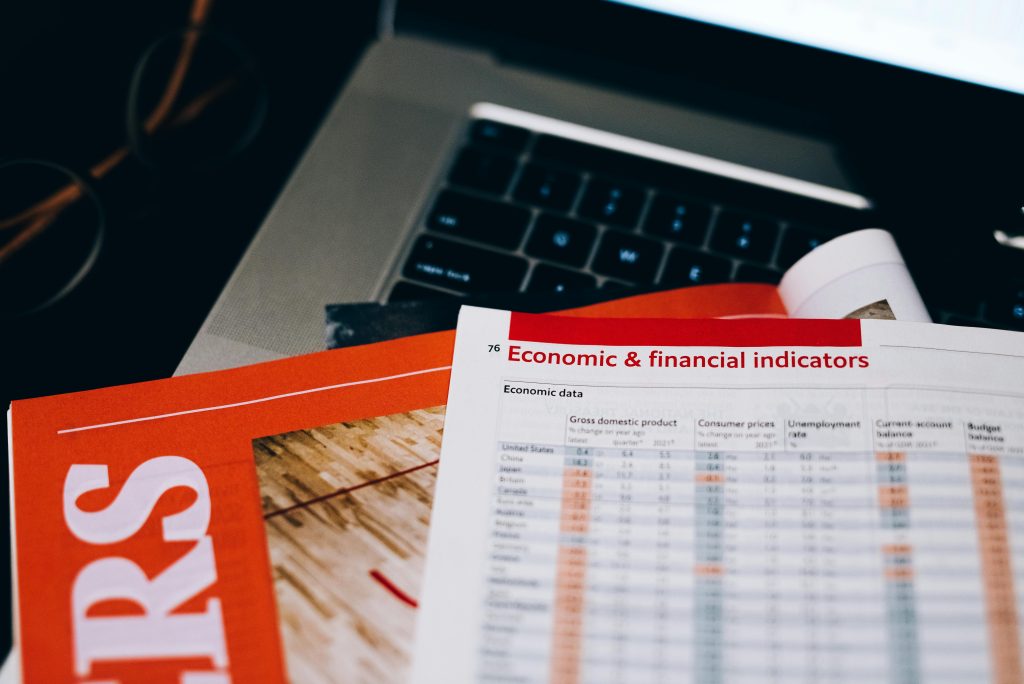
In 1984, the Commodity News Services published news that a Japanese firm was taking over the famous Continental Illinois Bank. Customers rushed to the bank after hearing this news to claim their news. There was just a slight problem, i.e., the reporters had mistranslated “rumor” as “announcement” and reported gossip as fact. This simple example shows why financial translations need to be 99.99% accurate.
When it comes to accuracy in financial document translation or foreign currency translation, you cannot risk publishing the wrong information. Even minor mistakes, such as misspelled financial numbers or digits placed in the wrong place, may lead to financial loss. That’s why you need to rely on accurate methods of translating financial statements. That’s the only way to conduct business in this globalized world.
In this article, we’ll answer some important questions. What is financial translation accuracy, and how do you ensure it? What happens when you get currency translation wrong? You’ll learn it all.

The Importance of Financial Translations
You may wonder why stuff like the translation of balance sheet even matters. Why do we have to worry so much about accuracy in, let’s say, French to Arabic financial translation? We have previously mentioned how HSBC Bank lost $10 million when its marketing team translated the slogan “Assume nothing” as “Do nothing” in certain countries, confusing their clients. But that’s not all! On another occasion, the same bank assumed that “m” in a foreign language meant million when it actually stood for thousand. This example shows why accuracy is so important when it comes to translating financial statements.
Why do Businesses Need Financial Translation?
Any banking-related document may fall under the purview of financial translation. Bonds and equities may have to be converted into another language. Insurance policies, prospectuses, financial reports, balance sheets, invoices, income statements, tax returns, contracts, and other documents sometimes need to be reworded in other languages. But why are financial translations so important? A few reasons why the world needs financial translation are:

It helps you communicate with your customers around the world.
- You need a nuanced translation that’s both financially accurate and semantically correct; choose the right words/phrases to get your message across the table to your foreign investors.
- Your company’s brand image relies on transcreation experts along with financial translators.
- It helps you to ensure regulatory compliance with the Securities and Exchange Commission; your business must follow the international standards for financial reporting as well.
- Only hire professional translators to keep your sensitive financial data private.
In the next section, we’ll explain some of the biggest challenges in the translation of financial documents. It’ll help you understand why hiring a translator with financial expertise is so important. You can’t just hire a translator or utilize AI tools to translate your sensitive financial data.
Common Pitfalls in Translating Financial Documents
Consider this example: Merrill Lynch entered into a contract with a S. Korean company. The contract had a clause that gave the Korean company the right to terminate it if Merrill Lynch failed to meet certain fiscal targets. However, disaster struck when the management at Merril Lynch realized that they’d mistranslated the contract, and it didn’t contain the right target amount in the termination clause. This translation error caused a lengthy legal dispute that ended up with Merrill Lynch losing over $500 million. What are some pitfalls and challenges facing companies who aim for worldwide expansion?

- Some amateur translators only understand the fundamentals of the target language but not the nuances or cultural context behind certain terms.
- A poorly formatted document can diminish its readability and comprehension. You must also be mindful of which new formats are used in the target region (PDF or something else).
- Overlooking local laws and regulations can open the doorway to potential legal issues. That’s why you have to localize your financial documents to comply with local laws.
- Don’t hire a translator who doesn’t know how to create a glossary of terms and conditions. These glossaries help translators stay consistent when translating complex financial documents.
- The bottom-of-the-barrel translators won’t even localize currencies. For instance, if you’re doing an English-to-Russian translation, it’s important to convert dollar ($) values to ruble (₽) ones.

You can now see why only an experienced professional should work on your sensitive financial data. Even if you manage to find someone at a cheaper rate, they may steal your data. You must be mindful of data thieves and translation scammers when looking for translation experts online. In the next section, you will learn how professionals translate financial documents and which practices they keep in mind to ascertain data accuracy.
Translating Financial Documents: Tips and Best Practices
Suppose you wanted to travel from one country to another. You’d have to get an ID card translation first. For that, you’d hire someone with experience in translating ID cards from one language to another. You’d ensure that the translator has a high success rate and that their translations are accepted in that particular country. When it comes to marketing, business expansion, and communicating with foreign investors, the role of translators can’t be ignored. Whether it’s Pepsi claiming to bring back dead ancestors from graves (a mistranslation of “Bring you back to life” in Chinese) or American Airlines rewording “Fly in leather” as “Fly in nude” in Latin America, even transcreation fails have dire financial consequences. So, how do you make sure that your financial data is being translated accurately?

Focus on Accuracy, not Speed
Many companies looking into global expansion make this colossal mistake, i.e., they prioritize speed over everything else, sometimes even the accuracy of that very document. You shouldn’t risk accuracy to get a speedy translation of your financial documents done.
Be Mindful of the Cultural Context
Even financial communication has a cultural context, and you must understand the nuances and subtleties of cultural differences when rewriting a document in another language. Familiarize yourself with the cultural sensitivities in financial communication to make sure that your message isn’t taken the wrong way.
Conduct Thorough Research
Your financial document can’t be translated properly without adequate research. That’s how a translator becomes familiar with the legal concepts explored in a financial document. That’s why translators look up legal dictionaries and reference materials (and even talk to subject matter experts) to bring accuracy.
Include Consistent and Updated Information
You have to utilize the same tone, style, and terminology throughout the document. Consistency is vital in financial statement translation. Also, use the updated financial terms/jargon to avoid confusion. You may use online resources like Investopedia’s financial terms dictionary to see the latest terminologies.

Conduct Quality Assurance
After you’re done translating your financial documents, it’s necessary to conduct quality assurance. Maybe another writer can have a look at it to make sure it’s error-free. It’s always necessary to make someone go through your translated content for editing/proofreading.
In short, you should contact a reputable translation agency that charges less than $30 per page and can finish your document’s translation within 24 hours. These agencies are experienced, certified translators who offer services like foreign currency translation and others. Hopefully, you now understand why sensitive documents shouldn’t be left to be translated by a machine; machines can’t ensure the same level of quality as humans can!
Final Words
Recently, a mistranslated statement attributed to Sony’s CFO quoted him predicting the introduction of new games on competing gaming consoles. This mistranslation caused panic not only among PlayStation fans but investors as well. Had they hired agencies like TranslateSwift to properly reword the CFO’s statement from Japanese to English, they wouldn’t have confused their investors. This example shows the importance of translating statements of financial impact with accuracy – a service only experts can provide.

You can order accurate, fact-checked financial statement translation to ensure that your investors, clients, and stakeholders receive reliable information about your business. Whether you are an individual or own a small business, financial document translation accuracy is key to business success in the 2020s. And you can ensure this accuracy by working with credible, well-reviewed translation agencies.
FAQs – Accuracy in Financial Document Translation
How do you produce accurate translations of financial documents?
You need to use industry-specific vocabulary across the translation. Also, pay close attention to the digits, currency, and financial calculations you’re using to avoid any confusion when the target audience (such as an investor) reads this document.
How can I select a qualified financial document translator?
A good financial document translator needs to have extensive experience in this niche. You should ensure that this translator has a strong command of the source and target languages. Also, verify their credentials and only work with agency-approved wordsmiths.
Can we use technology to ensure financial document translation accuracy?
Yes, even professional translators use computer-assisted translation (CAT) to maintain the same formatting in all documents. Automated quality checks bring numerical while secure cloud-based platforms manage the workflow among different translators.










